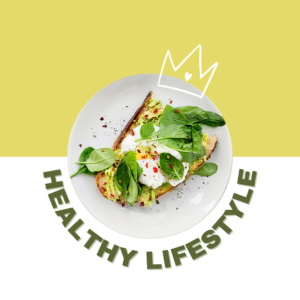If you're looking to lose weight and improve your overall health, finding the right diet plan is key. There are countless options out there, but not all of them are effective or sustainable. In this article, I will introduce you to some of the best diet plans that can help you achieve your weight loss goals while promoting a healthy lifestyle.
When it comes to diet plans, it's important to choose one that prioritizes nutrition and incorporates a variety of foods. A balanced diet plan ensures that your body gets all the essential nutrients it needs while limiting the intake of unhealthy processed foods and excessive calories. This approach not only helps you shed those extra pounds but also improves your overall well-being.
The key to a successful weight loss journey is finding a diet plan that works for you. Each person is unique, and what works for one individual may not work for another. It's important to consider your personal preferences, dietary restrictions, and lifestyle when choosing a diet plan.
In this article, I will delve into three popular diet plans that have been proven effective for weight loss and promoting good health. These include the Mediterranean diet, the DASH diet, and plant-based diets. I will explore the principles, benefits, and potential drawbacks of each of these diets, helping you make an informed decision about which one might be right for you.
Key Takeaways:
- Choosing a balanced diet plan is essential for healthy weight loss and overall well-being.
- Consider your personal preferences, dietary restrictions, and lifestyle when selecting a diet plan.
- The Mediterranean diet, the DASH diet, and plant-based diets are popular options for weight loss and improved health.
- These diets emphasize whole foods, limit processed foods, and offer a range of health benefits.
- Consult with a healthcare provider before starting any diet plan to ensure it aligns with your individual needs.
The Mediterranean Diet
The Mediterranean diet is a highly acclaimed eating plan renowned for its numerous nutrition benefits and sustainability. It is considered the gold standard for nutrition and disease prevention.
This diet focuses on a wide variety of plant-based foods, including vegetables, fruits, whole grains, legumes, nuts, and seeds. It also includes moderate amounts of fish and poultry, and limits the consumption of red meat and processed meats.
The Mediterranean diet emphasizes the use of heart-healthy olive oil as the primary source of fat and encourages the consumption of antioxidant-rich foods, such as tomatoes, berries, and leafy greens, to combat inflammation and oxidative stress.
This dietary pattern restricts the intake of refined grains, trans fats, added sugars, and highly processed foods. It promotes the consumption of whole, natural foods that are minimally processed.
Studies have shown that adhering to the Mediterranean diet is associated with a reduced risk of chronic diseases, such as heart disease, cancer, and diabetes. It has also been linked to increased life expectancy and weight loss.
The sustainable nature of the Mediterranean diet lies in its reliance on local, seasonal ingredients and traditional food preparation methods. This approach not only benefits the individual's health but also supports the environment by reducing carbon footprint and promoting local agriculture.
The Mediterranean diet is not just a diet; it's a way of life that promotes overall well-being and longevity.
| Nutrition Benefits of the Mediterranean Diet |
|---|
| Reduced risk of chronic diseases |
| Increased life expectancy |
| Weight loss support |
| Improved heart health |
| Enhanced cognitive function |
| Anti-inflammatory properties |
| Lowered blood pressure |
| Strengthened immune system |
The DASH Diet
The DASH diet, also known as the Dietary Approaches to Stop Hypertension, is a scientifically proven eating plan designed to treat and prevent high blood pressure. It focuses on a balanced combination of fruits, vegetables, whole grains, lean meats, and low-fat dairy products while minimizing the intake of salt, red meat, added sugars, and unhealthy fats.
The DASH diet not only plays a crucial role in managing high blood pressure but also offers numerous benefits for overall health and weight loss. By following this eating plan, individuals can significantly reduce their blood pressure levels, lower the risk of heart disease, and achieve sustainable weight loss.
One of the key features of the DASH diet is its emphasis on consuming a variety of nutrient-rich foods. Fruits and vegetables are packed with vitamins, minerals, and fiber, which have been shown to reduce blood pressure and promote cardiovascular health. Whole grains provide essential nutrients while keeping you feeling fuller for longer, supporting weight loss efforts.
Lean meats, such as poultry and fish, are excellent sources of protein without the added saturated fats found in red meat. This not only aids in weight management but also contributes to heart health. Low-fat dairy products supply essential calcium and protein, further supporting overall health.
The DASH diet's restriction of salt intake is particularly important for managing high blood pressure. Excessive salt consumption can lead to fluid retention and increased blood pressure. By reducing salt in your diet, you can mitigate these effects and maintain a healthy blood pressure.
Furthermore, adhering to the DASH diet can have positive effects on mental health and metabolic health. Studies have shown that this eating plan can help combat symptoms of depression and improve insulin sensitivity, promoting better blood sugar control.
Adopting the DASH diet is a smart choice for those looking to manage high blood pressure and achieve weight loss. By nourishing your body with wholesome foods and reducing the intake of sodium and unhealthy fats, you are taking proactive steps towards improving your overall well-being.
It's important to note that the DASH diet may not be suitable for individuals without hypertension or health conditions that require sodium restriction. If you have any concerns or specific dietary needs, it's always advisable to consult with a healthcare professional before starting any diet plan.
In the next section, we'll explore the health benefits and considerations of plant-based and flexitarian diets.
Plant-Based and Flexitarian Diets
Plant-based diets, such as vegetarianism and veganism, have gained popularity due to their numerous health benefits and ethical considerations. These diets restrict the consumption of animal products and instead focus on plant-based foods for nourishment.
One popular variation of a plant-based diet is the flexitarian diet, which allows for moderate consumption of animal products. This flexibility makes it more manageable for individuals who are not ready to fully commit to a strict vegetarian or vegan lifestyle.
Plant-based diets, including the flexitarian diet, have been associated with a range of health benefits:
- Reduced risk of chronic diseases: Plant-based diets are rich in vitamins, minerals, and antioxidants that can help lower the risk of conditions such as heart disease, diabetes, and certain types of cancer.
- Improved metabolic health: By focusing on whole, unprocessed foods, plant-based diets can help regulate blood sugar levels, improve insulin sensitivity, and promote a healthy weight.
- Lower blood pressure: The abundance of fruits, vegetables, whole grains, and legumes in plant-based diets can contribute to lower blood pressure levels and reduce the risk of hypertension.
- Aid in weight loss: Plant-based diets, particularly those that emphasize whole foods and limit processed products, can support weight loss efforts by providing fewer calories while offering a high nutritional content.
The flexitarian diet, in particular, has been shown to have additional benefits, including a reduced risk of type 2 diabetes. By decreasing meat consumption, individuals can improve their insulin sensitivity and reduce the likelihood of developing this metabolic disorder.
Another advantage of plant-based and flexitarian diets is the positive environmental impact. By reducing reliance on animal products, these diets promote sustainability and contribute to the conservation of resources. Additionally, they support animal welfare and ethical considerations.
It is important to note that while plant-based and flexitarian diets offer a range of health benefits, they can feel restrictive to some individuals. It's essential to find a balance and ensure that the chosen diet plan meets your nutritional needs and aligns with your personal preferences and goals.
By adopting a plant-based or flexitarian diet, individuals have the opportunity to improve their overall health, protect the planet, and support ethical practices while still enjoying a variety of delicious and nutritious foods.
Conclusion
When it comes to weight loss and improving overall health, it is crucial to find the best diet plan for your needs. The Mediterranean diet, DASH diet, and plant-based diets have emerged as some of the most effective and popular options in promoting weight loss and reducing the risk of chronic diseases. These diets prioritize whole foods and limit processed foods, ensuring that you consume nutrient-rich meals.
However, it is important to remember that each individual is unique, and what works for one person may not work for another. That's why customized and personalized diet plans are gaining popularity. By tailoring a diet plan to your specific needs and preferences, you can achieve the best results in your weight loss journey.
Before embarking on any diet plan, it's always wise to consult with a healthcare provider. They can provide guidance, evaluate your health condition, and help you make an informed decision. By working with a professional, you can ensure that the diet plan you choose is safe, effective, and suitable for your individual circumstances.
In conclusion, the best diet plans for weight loss and improved health are the ones that are well-rounded, emphasize whole foods, and can be personalized to suit individual needs. The Mediterranean diet, DASH diet, and plant-based diets have proven their effectiveness, but remember to find what works best for you. With the right diet plan and professional guidance, you can achieve your weight loss goals and enjoy long-term health benefits.
FAQ
What are the best diet plans for weight loss and overall health?
The best diet plans for weight loss and overall health include the Mediterranean diet, DASH diet, and plant-based diets.
What is the Mediterranean diet?
The Mediterranean diet is a nutritionally balanced eating plan that emphasizes whole foods such as vegetables, fruits, whole grains, fish, nuts, lentils, and olive oil. It limits processed foods, refined grains, trans fats, processed meats, added sugar, and highly processed foods.
What are the benefits of the Mediterranean diet?
The Mediterranean diet has been associated with a reduced risk of chronic diseases, increased life expectancy, and weight loss. It also promotes the consumption of antioxidant-rich foods to combat inflammation and oxidative stress.
What is the DASH diet?
The DASH diet is an eating plan designed to treat or prevent high blood pressure. It emphasizes fruits, vegetables, whole grains, lean meats, and low-fat dairy products, while limiting salt, red meat, added sugars, and fat.
What are the benefits of the DASH diet?
The DASH diet has been shown to reduce blood pressure levels, lower the risk of heart disease, and help with weight loss. It can also help combat symptoms of depression and improve metabolic health.
What are plant-based and flexitarian diets?
Plant-based diets, including vegetarianism and veganism, restrict animal products for health, ethical, and environmental reasons. The flexitarian diet allows for moderate consumption of animal products.
What are the benefits of plant-based and flexitarian diets?
Plant-based diets can reduce the risk of chronic diseases, improve metabolic health, lower blood pressure, and aid in weight loss. Flexitarian diets have similar benefits and are associated with a reduced risk of type 2 diabetes. Additionally, decreasing meat consumption promotes sustainability.
How do I choose the right diet plan for me?
It's important to choose a diet plan that suits your individual needs and preferences. Customized and personalized diet plans may offer the best results. It's always a good idea to consult with a healthcare provider before starting any diet plan.





